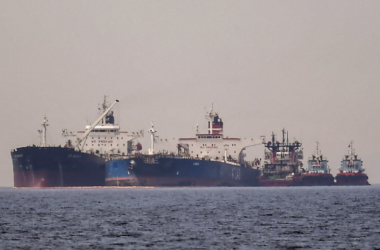The outlawed Kurdish group, the PKK, has declared a ceasefire with Turkey after its jailed leader, Abdullah Ocalan, urged the movement to lay down its arms and dissolve itself.
In a statement on Saturday, the PKK expressed hope that Turkey would release Ocalan, who has been held in solitary confinement since 1999, so he could lead the disarmament process. His appeal comes amid efforts to end a four-decade-long conflict in southeastern Turkey, which has claimed tens of thousands of lives.
Ocalan’s announcement follows an initiative by Devlet Bahceli, leader of the ultra-nationalist MHP party and an ally of the Turkish government, to resolve the longstanding dispute. Earlier this week, Ocalan met with pro-Kurdish MPs on Imrali Island, where he is imprisoned.
“In order to pave the way for the implementation of leader Apo’s call for peace and democratic society, we are declaring a ceasefire effective from today,” the PKK executive committee said in a statement, as reported by the pro-PKK ANF news agency. “None of our forces will take armed action unless attacked,” it added.
However, Turkish President Recep Tayyip Erdogan warned on Saturday that military operations against the PKK would resume if the group failed to uphold its commitments and the disarmament process stalled.
The PKK, which stands for the Kurdistan Workers’ Party, also called for improved prison conditions for Ocalan, stating that he “must be able to live and work in physical freedom and be able to establish unhindered relationships with anyone he wants, including his friends.”
Since 1984, the PKK has waged an insurgency seeking autonomy for Kurds, who make up about 20% of Turkey’s 85 million population. The group is designated a terrorist organization by Turkey, the EU, the UK, and the U.S. Ocalan’s call for disarmament was delivered through a letter read in both Kurdish and Turkish by pro-Kurdish Dem Party members Ahmet Turk and Pervin Buldan.
He urged PKK members to “lay their arms and dissolve the organization,” explaining that the movement emerged due to a lack of democratic political channels. However, he acknowledged that Bahceli’s initiative, supported by Erdogan and other political parties, had created the right conditions for the PKK to disarm.
The announcement was met with cautious optimism from Kurdish leaders. Local reports indicated that thousands gathered in Diyarbakir and Van to watch the statement on big screens. However, uncertainty remains over what the next steps will be, with skepticism persisting among both Kurdish and Turkish communities.
Senior PKK commander Duran Kalkan recently cast doubt on Turkey’s intentions, arguing that the ruling AKP party seeks to “take over, destroy, and annihilate” rather than pursue a genuine solution. Meanwhile, Turkish-backed forces in northeastern Syria have escalated operations against Kurdish groups, urging Syria’s leadership to dismantle the Kurdish-led Syrian Democratic Forces.
Pro-Kurdish politicians have also faced a wave of arrests and prison sentences in recent years. Since the PKK insurgency began, approximately 40,000 people have been killed. The last major ceasefire, which lasted two and a half years, collapsed in 2015, leading to a surge in violence from 2015 to 2017.
More recently, in October, the PKK claimed responsibility for an attack on Turkish Aerospace Industries (TAI) headquarters near Ankara, which left five people dead.




